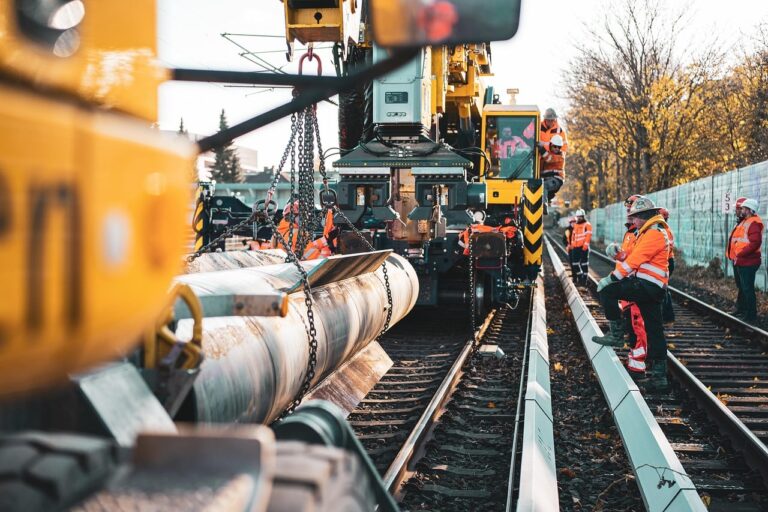Enhancing military communication: the crucial role of noise control
3 ways the ADF can benefit from addressing excessive noise Effective communication is the backbone of successful military operations. In fact, clear and uninterrupted transmission of critical information can be the difference between mission success and failure. However, in the dynamic environment of the defence industry, excessive noise poses a significant challenge to such effective…
3 ways the ADF can benefit from addressing excessive noise
Effective communication is the backbone of successful military operations. In fact, clear and uninterrupted transmission of critical information can be the difference between mission success and failure. However, in the dynamic environment of the defence industry, excessive noise poses a significant challenge to such effective communication.
To address this issue, Australian noise regulations ensure that military communication systems operate optimally. This article will explore the importance of noise control in the defence industry, and how it can significantly enhance military communication capabilities.
The impact of noise on military communication
In military operations, the term ‘noise’ refers to unwanted sounds that interfere with transmitting and receiving crucial information. Noise can originate from various sources, such as machinery, vehicles, aircraft, and weapon systems. Excessive noise levels can lead to reduced speech intelligibility, increased stress, and diminished situational awareness, all compromising effective military communication.
Australian noise regulations and the defence industry
With its robust defence industry, Australia recognises the importance of noise control in preserving the operational capabilities of its military personnel and equipment. The country has established stringent noise regulations to ensure compliance with noise standards, and actively works towards minimising noise emissions. These regulations provide a comprehensive framework for noise assessment, control, and management in defence-related activities.
The benefits of effective noise control for military communication
1) Enhanced speech intelligibility
Excessive noise hinders understanding of spoken words and commands, making effective communication difficult for military personnel. The clarity of transmitted information can be significantly improved by implementing noise control measures such as acoustic insulation, vibration damping, and soundproofing technologies. This enhancement in speech intelligibility enables more precise and efficient communication among military personnel.
2) Improved situational awareness
Clear communication is essential for maintaining situational awareness on the battlefield. Excessive noise creates confusion, hampers decision-making, and compromises the ability to detect critical audio cues. By reducing noise levels, military operators can better focus on important audio signals, such as incoming enemy fire, radio transmissions, or command instructions. This heightened situational awareness allows for faster response times and improved coordination among military units.
3) Reduced operator fatigue and stress
Sustained exposure to high noise levels increases fatigue and stress among military personnel. Prolonged noise exposure results in decreased concentration, reduced cognitive performance, and heightened mental and physical strain. Implementing effective noise control measures, such as noise-cancelling headsets or engineering noise reduction solutions, mitigates these effects. By reducing noise-induced fatigue and stress, military personnel can maintain their focus and cognitive abilities, improving communication and operational efficiency.
Innovations in noise control technology
Advancements in noise control technologies have offered promising solutions to the challenges faced by the defence industry. Active noise cancellation systems, for example, employ sophisticated algorithms and sensors to analyse and counteract unwanted noise in real-time, resulting in improved communication quality. And breakthroughs in materials science have led to the development of lightweight yet highly effective soundproofing materials that can be integrated into military equipment, vehicles, and infrastructure to reduce noise emissions.
Get advice on noise control for the defence industry
Noise control plays a vital role in enhancing military communication capabilities in the defence industry. Australian noise regulations provide a framework for minimising noise emissions, enabling clearer communication, improved situational awareness, and reduced operator fatigue and stress. By leveraging innovative noise control technologies, defence organisations can further optimise their communication systems, ensuring that critical information reaches the right person at the right time. Ultimately, by prioritising noise control, the defence industry can contribute to more effective military operations and increased mission success rates.
Flexshield is a trusted provider of noise control and screening solutions to the Department of Defence, both directly and via their contractors. Our solutions, such as acoustic doors, acoustic louvres, and Sonic Clear curtains, have been successfully implemented in various ADF facilities, including RAAF Base Williamtown, RAAF Base Townsville, RAAF Base Tindal, RAAF Base Pearce, HMAS Cerberus, and Gallipoli Barracks.
By partnering with experienced noise control specialists like Flexshield, defence organisations can benefit from tailored solutions that optimise military communication systems while ensuring compliance with noise regulations.
For expert advice on the right noise control solutions for your defence facility, please contact Flexshield at 1300 799 969 or get in touch online.
Related Stories
-

Flexshield’s big month in industrial noise control – on the road from QLD to WA!
Taking action for hearing health and sustainable water management It’s been a busy month for the Flexshield team, and we’ve covered vast distances from Queensland to New South Wales, Victoria, and Western Australia. It’s been… -

The science behind tailored industrial noise control solutions for your project
7 key considerations for addressing noise pollution for your project When you’re managing noise on a job site, it’s important to understand the science behind industrial noise control and how to apply it effectively. Whether… -

World Hearing Day 2025: protecting workers’ hearing with Flexshield
Why prioritising hearing protection is essential for your workforce Each year on March 3rd, the World Health Organisation (WHO) marks World Hearing Day, raising awareness about hearing loss and promoting actions to protect auditory health….